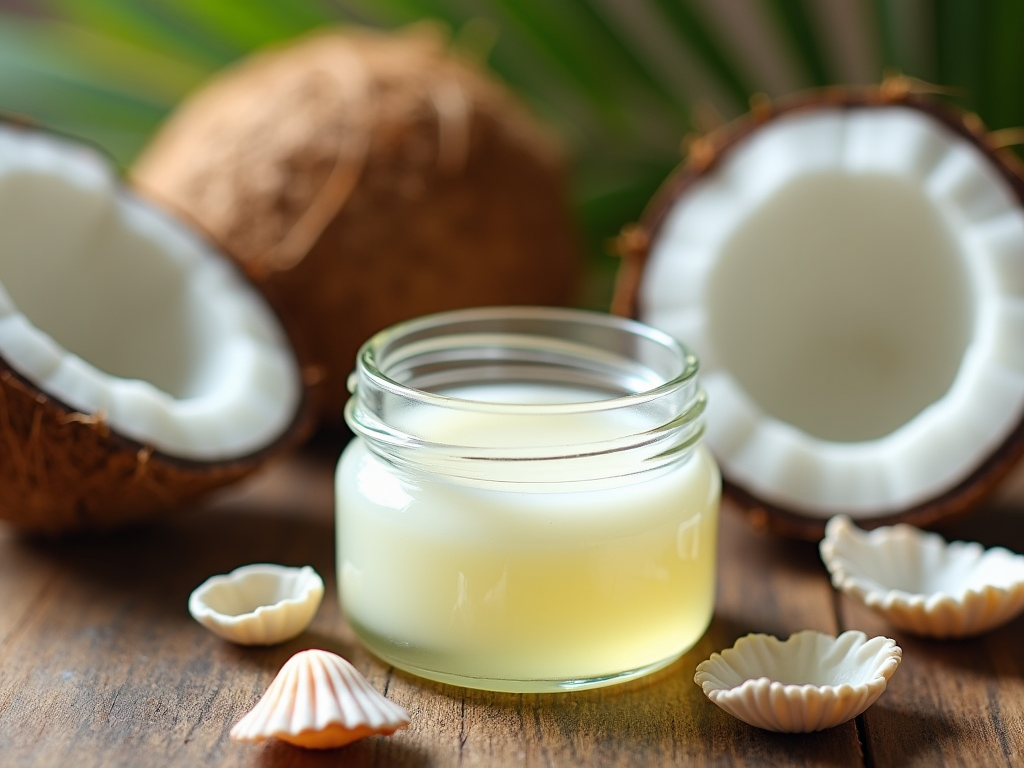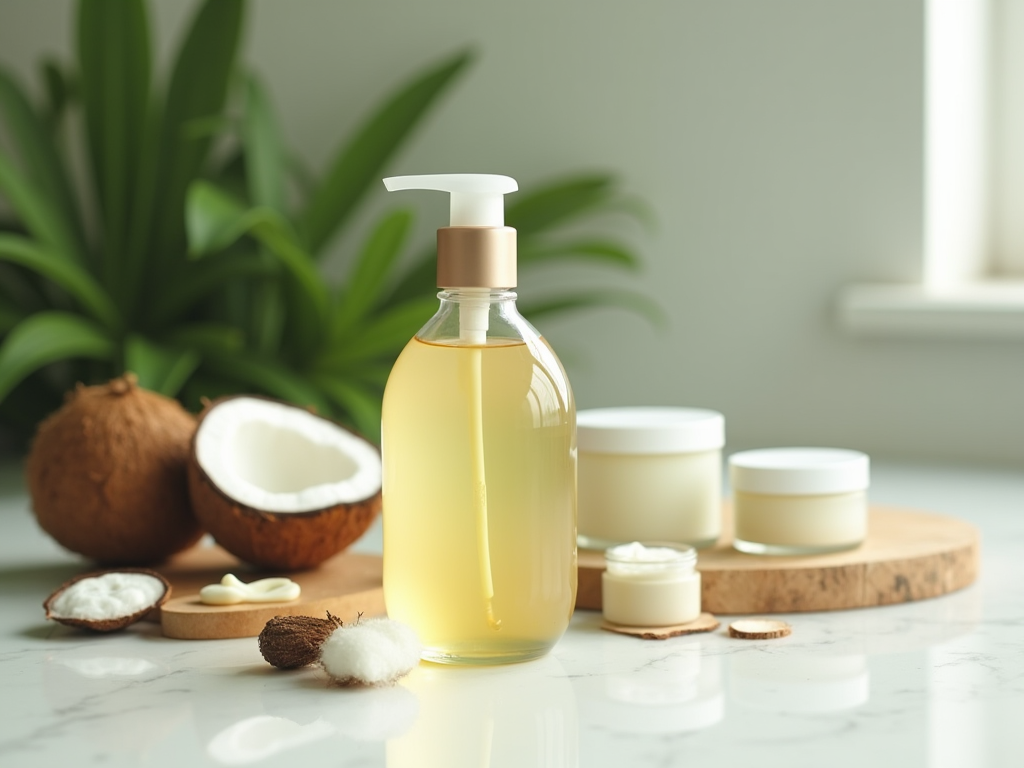Coconut oil has surged in popularity among beauty enthusiasts and skincare professionals alike. With its origins rooted in tropical cultures, this versatile oil has made its way into cosmetics, home remedies, and various health products. However, while many advocate its soothing benefits, others raise concerns about its effects, particularly on acne-prone skin. The debate centers around whether coconut oil serves as a natural remedy for acne or inadvertently exacerbates the condition. This article seeks to unpack this complex relationship, examining the various properties of coconut oil, the scientific understanding of acne, and how these factors interplay.
Acne is not just a teenage affliction; it affects individuals of all ages, impacting self-esteem and quality of life. Characterized by pimples, blackheads, and cysts, acne develops when hair follicles become clogged with oil, dead skin cells, and bacteria. The factors leading to this condition are multifaceted and include hormonal imbalances, dietary choices, stress, and genetic predisposition. Each case of acne can vary significantly in appearance and severity, which is why it is crucial to understand the specific triggers and types of acne that individuals experience. When exploring treatment options, many individuals turn to natural remedies like coconut oil, seeking an alternative to chemical-infused products.
Understanding Acne

To truly grasp the potential impacts of coconut oil on acne, it’s essential first to understand the condition itself. Acne manifests in various forms, encompassing several types that reflect the underlying causes. The most common types include:
- Hormonal Acne: Often associated with fluctuations in hormones, particularly during puberty and menstrual cycles.
- Non-Hormonal Acne: Includes acne triggered by environmental factors, such as pollution and bacteria.
- Cystic Acne: A severe form of acne characterized by large, painful cysts beneath the skin.
Understanding these categories helps individuals evaluate whether coconut oil aligns with their specific needs. The goal is to find solutions that effectively treat the skin without causing additional irritation or breakouts.
The Properties of Coconut Oil

Coconut oil is rich in medium-chain fatty acids, primarily lauric acid, which accounts for much of its antimicrobial properties. Studies indicate that lauric acid possesses antibacterial effects that target acne-causing bacteria such as Propionibacterium acnes. Alongside its ability to inhibit bacterial growth, it harbors anti-inflammatory qualities that help soothe irritated skin. Additionally, coconut oil is an excellent moisturizer. While common acne treatments can dry out the skin, coconut oil can help maintain moisture balance, potentially preventing an overproduction of oil. However, its high comedogenic rating poses a double-edged sword, making it pivotal to assess whether it will work for one’s unique skin type.
Coconut Oil and Acne: The Supportive Arguments
Proponents of coconut oil as a remedy for acne cite several benefits:
- Moisturization: Helps prevent skin dryness, making it less likely for the skin to produce excess oil.
- Anti-inflammatory Properties: Reduces redness and swelling associated with acne lesions.
- Antimicrobial Effects: Diminishes acne-causing bacteria, potentially leading to clearer skin.
These characteristics foster a positive perception surrounding coconut oil, making it an appealing option for skincare regimens focused on acne control.
Coconut Oil and Acne: The Contradictory Arguments
Despite its appealing properties, there is a significant risk of using coconut oil on acne-prone skin. Concerns include:
- High Comedogenic Rating: Ranking at 4 out of 5 on the comedogenic scale, coconut oil is likely to clog pores.
- Irritation for Sensitive Skin: Some individuals experience breakouts or irritation when introducing coconut oil into their regimen.
Individual skin types will react differently to coconut oil, making a thorough examination and consideration essential.
Understanding one’s skin type is pivotal when determining if coconut oil is an appropriate treatment. The following skin types may react differently:
| Skin Type | Potential Reaction to Coconut Oil |
|---|---|
| Oily Skin | Higher risk of breakouts due to clogged pores. |
| Dry Skin | May benefit from added moisturization; test for irritation. |
| Sensitive Skin | Possible allergic reactions; proceed with caution. |
Practical Tips for Using Coconut Oil on Acne
Before incorporating coconut oil into your skincare routine, consider the following practical tips:
- Patch Testing: Apply a small amount of coconut oil on a limited skin area to check for adverse reactions.
- Mix with Other Ingredients: Combine coconut oil with non-comedogenic oils or treatments to minimize pore-clogging risks.
- Monitor Results: Keep track of any changes in your skin condition over a few weeks before making it a staple.
These recommendations can help gauge how well coconut oil works for your specific skin concerns while reducing the chances of worsening your acne.
Conclusion
The relationship between coconut oil and acne isn’t a straightforward one. It exhibits both beneficial properties and potential risks, necessitating a personalized approach. While it may help some individuals manage their acne effectively, others could find coconut oil detrimental to their skin health. It’s important to consider your unique skin type and history, and perhaps even consult with a dermatologist before integrating coconut oil into your skincare routine. In skincare, one size definitely does not fit all.
Frequently Asked Questions
- Can coconut oil clog pores? Yes, coconut oil has a high comedogenic rating, which means it can clog pores, especially in those with oily skin.
- Is coconut oil effective for everyone with acne? No, individual reactions vary; while some may find it beneficial, others might experience worsening conditions.
- How should coconut oil be applied to acne-prone skin? Start with a patch test, apply a small amount, and monitor skin reactions before larger applications.
- Are there alternatives to coconut oil for acne treatment? Yes, alternatives include tea tree oil, salicylic acid, and benzoyl peroxide, which may be more suitable for oily or acne-prone skin.
- Can coconut oil be used as a moisturizer alongside acne medication? It’s best to consult with a dermatologist, as combining products can lead to irritation or reduced effectiveness.



